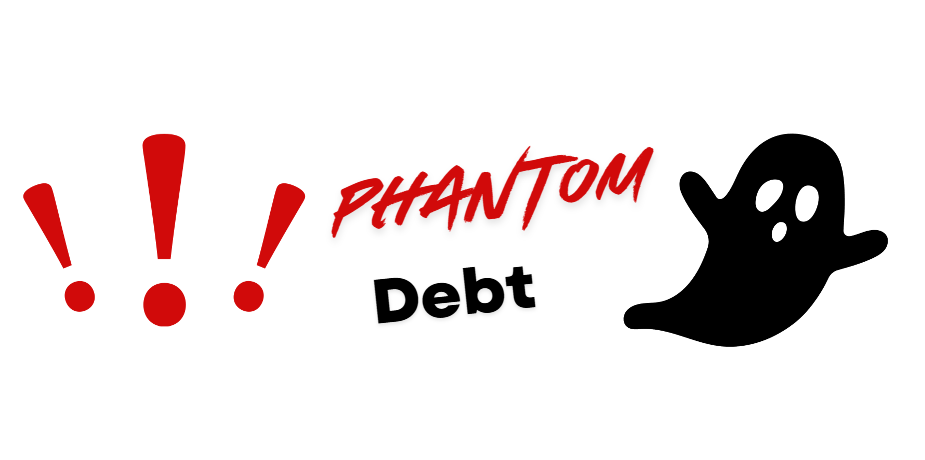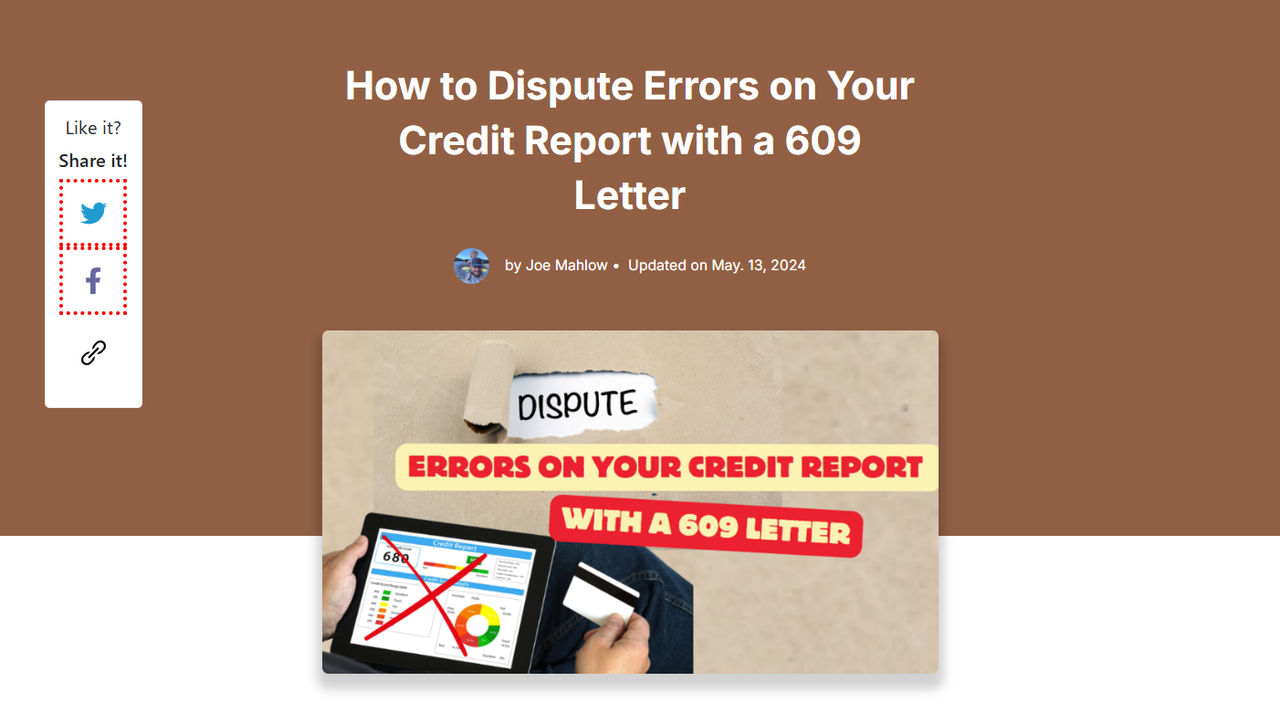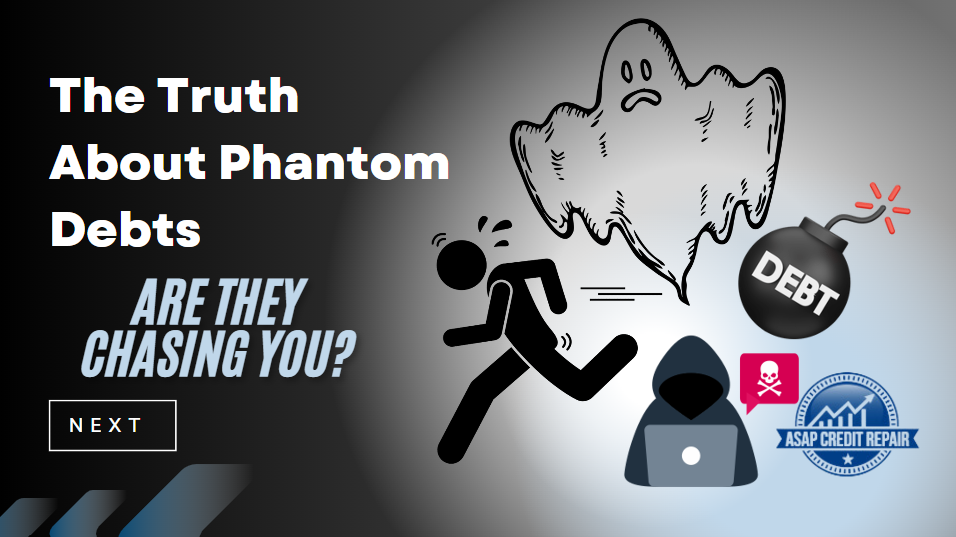Have you ever received a call or ccs notice claiming you owe money for a debt you don’t even recognize?
Sound familiar? Maybe you’ve had a collector threaten you, or you’ve lost sleep over a bill you’re not sure is even real. This unsettling experience is what we call a phantom debt.
And, I hear these stories all the time.
Phantom debts are a serious issue that many Americans face, but, you don’t have to let them control your life.
Together, let’s uncover the truth about phantom debts, give you tools to handle them, and remind you that no scammer or shady collector has more power than you do.
What Are Phantom Debts?

Phantom debts are fake debt claims made by scammers or even rogue debt collectors.
Imagine you’re sitting at home, and your phone rings and saw credence caller id. The person on the other end claims you owe $1,000 for a loan you don’t even remember taking. They sound convincing. They know your name, maybe even your address. But deep down, something doesn’t feel right.
These fraudulent claims are often for money you don’t owe or debts that are too old to be collected. In some cases, these scammers target people with expired debts, convincing them that they still owe money or that legal action will be taken if they don’t pay.
These fraudulent debts are called “phantom” because they seem to come out of nowhere. They are like “ghosts” that can haunt you until you take the right steps to protect yourself
“I once spoke with a woman who was in tears because she’d been called about a debt for a medical procedure she’d never had. She was terrified. But when we looked closer, it turned out to be Fake debt collectors. The bill didn’t even exist. And here’s the thing: these scams are designed to make you doubt yourself.”
Key Takeaway:
"If you’ve ever gotten a call like this, you’re not imagining things. Phantom debts are a real problem. But knowing what they are is the first step to stopping them."
The Real Problem Behind Phantom Debts
Before we dive deeper, let’s talk about the numbers.
Just how big is this problem? The truth is, phantom debts are a growing issue, and the statistics paint a sobering picture.
According to a 2023 report from the Consumer Financial Protection Bureau (CFPB), one in four complaints are about debt collection. That’s nearly 20,000 out of 80,000 annually. This pertains to mistaken identity, already-paid debts, or outright scams.
In addition, the Federal Trade Commission (FTC) reported that in 2022, U.S. consumers lost over $5.8 billion to imposter scams. A category that includes phantom debts. This represents a sharp 70% increase in losses compared to 2020, showing how rapidly these scams are evolving.
The impact?
Phantom debts results to tens of thousands of complaints and billions of dollars lost every year.
So you see…
For every legitimate debt, there’s a growing number of scammers who exploit fear and confusion to steal money. These numbers underline how widespread and severe the problem has become.
"So, if you’ve ever felt like you’re drowning in calls, letters, or threats, you’re not alone. These numbers reveal why talking about phantom debts is not just important—it’s urgent."
Why Do Phantom Debts Happen?
Why does this even happen? It’s a question I hear all the time. People feel like the system is stacked against them—and in some ways, it is.

Here are the most common reasons phantom debts pop up:
- Old Records: Debts are often sold and resold to different collection agencies. Somewhere along the line, the records get jumbled, and you end up getting calls about something you don’t owe.
- Identity Theft: This one’s scary. Someone steals your identity, racks up debt, and disappears, leaving you to clean up the mess. If you want to learn how to defend your credit against fraud and take steps to protect yourself, check out this comprehensive guide on identity theft.
- Scams: These are the predators. They create fake debts, use aggressive tactics, and try to squeeze money out of anyone they can.
Why Do Scammers Target People with Phantom Debts?
Phantom debt scams prey on your fear of financial trouble.
Many people panic when they receive a call or letter from a collector, fearing damage to their credit score, legal trouble, or worse. Scammers use this fear to convince you to pay money you don’t owe. The problem is, not all debt collectors are legitimate, and some go too far to make a quick buck.
According to the Consumer Financial Protection Bureau (CFPB), in recent years, there has been a sharp increase in complaints about debt collectors who use aggressive tactics and sometimes make false claims about debts that don't exist.
“Let me tell you about a client, Marcus, who got a call about a loan he supposedly took out 10 years ago. The ‘collector’ threatened to sue him if he didn’t pay up immediately. Marcus panicked—who wouldn’t? But when we investigated, we found out the loan was fake. It wasn’t even in his credit report.”
Good Read: How to Handle Keystone Collection and Protect Your Credit Score
The Emotional Toll of Phantom Debts
What’s worse about phantom debts is the emotional toll.
Debt collectors, especially the fake ones, are experts at playing on emotions. They want you scared because scared people are easier to manipulate. But here’s the truth: you have rights. And no collector, real or fake, can take those away from you."*
According to the American Psychological Association, 72% of individuals with debt in collections report experiencing severe anxiety and sleeplessness, and over half feel it negatively affects their relationships and job performance. In extreme cases, the stress can lead to physical health issues, creating a cycle of distress that’s hard to escape.
“I’ve had clients tell me they didn’t answer their phones for weeks because the calls were so relentless. Others stopped checking their mail. It’s exhausting. But hiding from the problem only gives these scammers more power.”
Common Signs of a Phantom Debt Scam

How to Spot a Phantom Debt
It’s important to be able to recognize the red flags of a phantom debt to protect yourself from these scams.
Here are some key signs to watch out for:
You don’t recognize the debt
If you’ve never heard of the company or lender that the collector is claiming you owe, it could be a scam.
They’re Overly Aggressive: Threats of lawsuits or arrest? If you feel its a Debt collection harassment, That’s usually a scam.
Pressure to pay immediately
Scammers often create a sense of urgency, threatening immediate legal action or severe consequences if you don’t pay quickly. Legitimate debt collectors will give you time to review the debt and ask for documentation.
Requests for untraceable payments
If you’re asked to pay via methods like gift cards, wire transfers, or cryptocurrency, that’s a huge red flag. These are common tactics used by scammers to collect untraceable payments.
Unprofessional communication
A legitimate collector will provide clear, professional communication with a mailing address, phone number, and other identifying information. If they refuse to provide any of this, or if their tone feels threatening, be cautious.
You might be interested: Clearing Collections: How to Handle and Remove SRS from Your Credit
I had a caller once say, ‘They told me they’d send the sheriff to my house!’ Let me be clear: that’s not how legitimate debt collection works. Ever.
How to Verify a Debt
So how to know if the debt is legitimate? Verifying a debt is your first line of defense against scams and errors.
Here’s a step-by-step guide to confirm whether the debt is valid:
1. Request a Debt Validation Letter
When contacted by a debt collector, always request a debt validation letter. Under the Fair Debt Collection Practices Act (FDCPA), collectors are required to provide written proof of the debt, including:
- The name of the original creditor.
- The amount owed, including itemized charges or fees.
- Proof that you are the person responsible for the debt.
This letter must be sent to you within five days of the initial contact.
2. Compare the Debt to Your Records
- Cross-check the details of the debt against your personal records and credit report. Use free tools like AnnualCreditReport.com to ensure the debt exists and matches the information provided.
- If the debt is not listed or the details don’t align, proceed with caution.
3. Check the Statute of Limitations
Debt has a statute of limitations, which is the time frame during which creditors can legally sue you to recover the amount. This varies by state but typically ranges from 3 to 10 years. If the debt is outside this period, collectors cannot take legal action, even if the debt exists.
4. Verify the Debt Collector
Ensure the collector contacting you is legitimate by:
- Asking for their name, company, and contact details.
- Searching the company in public records or on the Consumer Financial Protection Bureau (CFPB) complaint database.
5. Be Wary of Red Flags
- Refusal to provide written proof.
- High-pressure tactics like threats of lawsuits or arrest.
- Requests for immediate payment through untraceable methods like gift cards or wire transfers.
Key Takeaway: Never pay or provide personal information until the debt is verified. If in doubt, consult with a consumer protection attorney or a trusted credit counselor.
Since we already talked about how to spot if a debt is valid, next is learning what to do if not.
Debt Dispute Tips

If you believe a debt is inaccurate or invalid, disputing it is a critical step. Here’s how to navigate the process:
1. Dispute in Writing
Send a written dispute letter to the debt collector within 30 days of receiving the validation notice. This letter should:
- Clearly state that you are disputing the debt.
- Request additional documentation, such as the original agreement or payment history.
- Include copies of any supporting evidence (e.g., receipts, credit reports showing no such debt).
Send the letter via certified mail with a return receipt to ensure there is a record of your communication.
2. Contact the Credit Reporting Agencies
If the disputed debt is reflected in your credit report, you can also file a dispute with the credit reporting agencies (Equifax, Experian, and TransUnion). Under the Fair Credit Reporting Act (FCRA), agencies must investigate disputes and respond within 30 days.
3. Collect Evidence
Gather any documentation that supports your case, such as:
- Bank statements or canceled checks showing payment.
- Proof of identity if you suspect identity theft.
- Correspondence from the original creditor.
4. Follow Up Regularly
Stay proactive by:
- Tracking deadlines for responses from collectors and credit agencies.
- Keeping a detailed log of all communications, including dates, times, and summaries of discussions.
5. Report Violations
If a debt collector violates your rights—such as continuing collection efforts during the dispute period—report them to:
- The CFPB.
- Your state’s Attorney General.
- The Federal Trade Commission (FTC).
6. Consider Professional Help
For complex disputes, working with a credit repair professional, lawyer, or nonprofit credit counseling service can improve your chances of success. They can navigate legal intricacies and negotiate on your behalf.
Important: Disputing a debt is your right, and collectors must stop all collection activity until the dispute is resolved. Be thorough, assertive, and aware of your legal protections.
How to Handle Phantom Debts Scam
If you believe you’re being targeted by a phantom debt scam, here are the steps you should take immediately:
Don’t panic
The first thing to remember is not to react out of fear. Phantom debt scammers rely on urgency and panic to pressure people into paying. Take a step back and assess the situation calmly.
Request documentation
Under the Fair Debt Collection Practices Act (FDCPA), legitimate debt collectors must provide verification of the debt if you request it in writing. Ask them for the original creditor’s name, the amount of the debt, and proof that the debt is yours.
Don’t make immediate payments
Never pay a debt unless you’re certain it’s legitimate. If the debt is real, the collector should be willing to work with you and provide all the necessary information to verify it.
Know your rights
You have the right to dispute any debt that you don’t recognize. If the debt is past the statute of limitations (usually 3-6 years depending on your state), you may not be legally obligated to pay it. Familiarize yourself with the rules in your state to understand your rights.
Report the scam
If you discover that you’re dealing with a scam, report it to the Federal Trade Commission (FTC) or the Consumer Financial Protection Bureau (CFPB). These agencies track fraud and work to protect consumers from deceptive practices.
What to Do if You’re a Victim of Phantom Debt
If you’ve already fallen victim to a phantom debt scam, don’t feel embarrassed. It happens more often than you might think. Here’s how to recover:
Dispute the debt: If you’ve made a payment on the scam debt, contact your bank or credit card company to dispute the charge. They may be able to reverse it if the payment was recent.
File a report: File a complaint with the FTC, CFPB, or your state’s attorney general. This helps prevent further fraudulent activity and could assist in getting your money back.
Monitor your credit: Regularly check your credit reports for any signs of fraud or new accounts opened in your name. You can get a free report annually from each of the three major credit bureaus at AnnualCreditReport.com. You can also use free credit monitoring tools so you know what’s on your credit report.
Real Stories, Real Solutions
Let’s go back to Marcus, the single dad I mentioned earlier. When we realized the debt wasn’t real, we contacted the original creditor directly. They confirmed what we suspected—it was a scam. And just like that, the calls stopped.
Another client, Sarah, almost paid $500 for a debt that wasn’t hers. She felt pressured, like she had no choice. But after we reviewed the records, she stood her ground. That $500 stayed in her pocket, where it belonged."
How to Protect Yourself in the Future

So, are phantom debts chasing you? They don’t have to. With the right tools and mindset, you can take back control.
The best way to fight phantom debts is to prevent them.
Here’s how:
- Monitor Your Credit: Check your reports regularly for errors.
- Be Cautious with Personal Info: Don’t share sensitive details unless you’re sure of who you’re dealing with.
- Know Your Rights: The more you know, the harder you’ll be to scam."*
If you feel that today’s article was helpful, share it with someone who might be struggling. And if phantom debt is causing you stress, ASAP Credit Repair is here to help. Our team specializes in resolving credit issues, so you can reclaim your financial peace of mind. Contact us today to get started.
You’re stronger than the scammers, and you deserve peace of mind.

